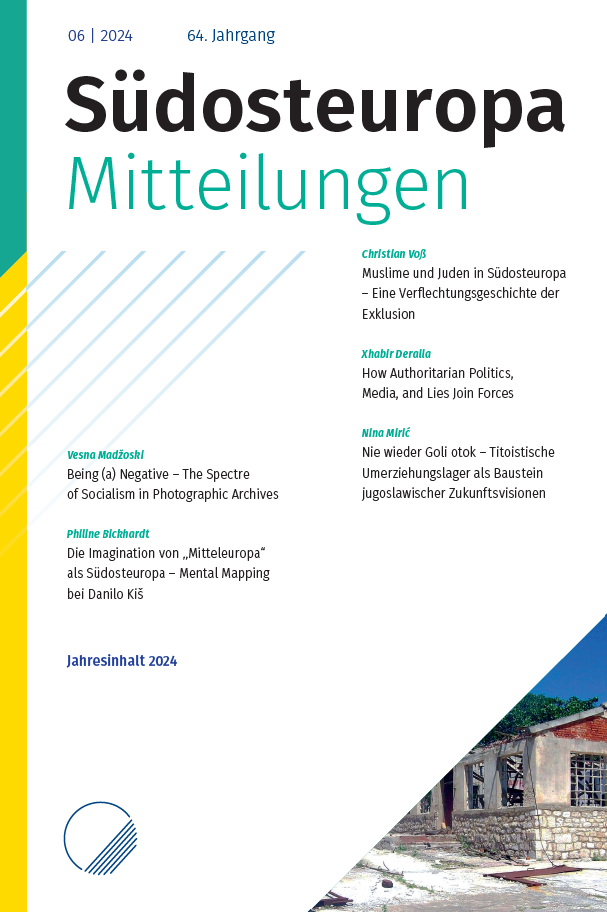Muslime und Juden in Südosteuropa: Eine Verflechtungsgeschichte der Exklusion
Muslims and Jews in Southeastern Europe: An Entalgled History of Excluison
Author(s): Christian VossSubject(s): Christian Theology and Religion, History, Jewish studies, Theology and Religion, Islam studies, Comparative Studies of Religion, The Ottoman Empire
Published by: Südosteuropa Gesellschaft e.V.
Keywords: religion; Islam; Judaism; stereotypes; history; Ottoman empire;
Summary/Abstract: The article examines the entangled history of Jews and Muslims in Southeast Europe, particularly in the context of religious intolerance and the exclusion processes that both groups experienced over the last two centuries. While Jews and Muslims were part of the urban elite during the Ottoman period, the dissolution of the Ottoman Empire led to their drastic marginalization. The Holocaust and ethnic cleansing in the 20th century resulted in a significant decline of both communities, when the vast majority of Balkan Jews had been killed. The author argues that despite shared experiences of exclusion, there were no conflicts over victim competition between Jews and Muslims, as the culminations of exclusion did not occur simultaneously. The study also highlights the role of solidarity and interreligious dialogue, as exemplified by the activities and narratives of the Sephardic NGO “La Benevolencija” in Sarajevo. Through a critical analysis of Balkan discourses, Voß refutes stereotypical notions and demonstrates that the region has exhibited remarkable religious coexistence over centuries, which has been threatened only by processes of nation-building and modernization.
Journal: Südosteuropa Mitteilungen
- Issue Year: 64/2024
- Issue No: 6
- Page Range: 7-18
- Page Count: 12
- Language: German
- Content File-PDF

